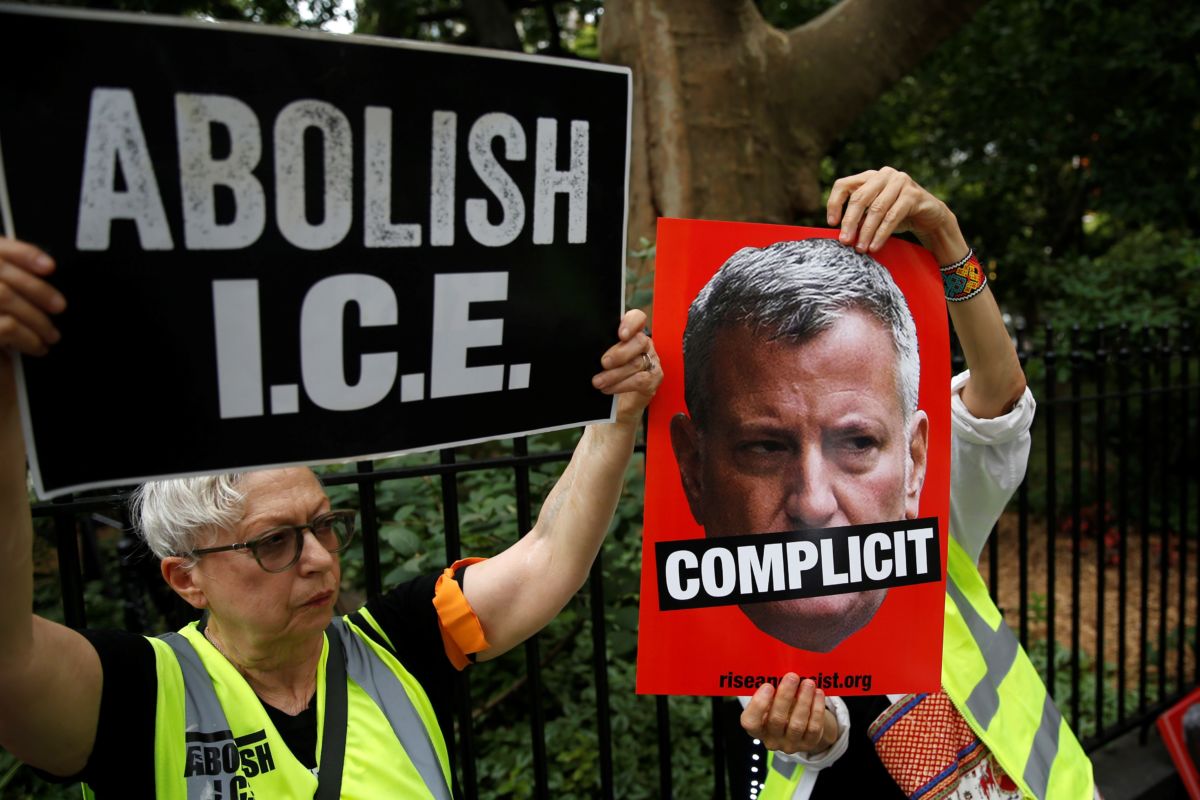Everyone’s favorite federal agency is in the news again.
While Immigration and Customs Enforcement agents have a long history of hanging out at courthouses to pick up undocumented immigrants who are there for completely unrelated reasons, they’re getting a whole lot more bold.
The agency claims it has become necessary to step up activities at courthouses in a petulant FAQ, complaining about “increasing unwillingness of some jurisdictions” (i.e., sanctuary cities).
And step up activities it has. According to an Immigrant Defense Project report, ICE arrests and sightings have increased by roughly 1,700 percent at New York courthouses since the Trump administration took office.
The problem is getting so bad that the New York state government just issued a policy designed to restrict the authority of ICE in state courts. It’s not the only state trying to put the agency in check, arguing that ICE is overstepping its bounds and creating problems with the legal system. And to ICE’s dismay, judges keep agreeing with these arguments.
Public defenders say the arrests are dangerous for their clients and for the legal system. Prosecutors happen to agree, which is pretty unusual. And someone else does, too: judges. A Massachusetts judge actually just got in trouble for directing her staff to help an undocumented immigrant leave the courthouse via an entrance far from where ICE agents were waiting.
Proponents of this policy say undocumented people are in the United States without legal permission, so they should be picked up and deported. Courts make a convenient spot to do that because ICE can note known or suspected undocumented people appearing in the docket and take steps to apprehend them. But these proponents don’t consider the larger implications of the policy they’re recommending.
One big issue is people who are afraid of ICE may not respond to a court summons, whether they are charged with a crime or being called as a witness. When witnesses can’t testify, it undermines the legal case in question — something that should concern law-and-order types. In addition, fear of the court system makes people reluctant to report crimes or come forward as witnesses. They may not want to expose themselves to the risk of being arrested by ICE in the process of being responsible members of society who alert law enforcement to dangerous or illegal activity.
For undocumented immigrants who are trying to change their immigration status, this practice carries another frustrating hit: It’s critical to have a clean and responsible legal record when applying for a legal immigration status. If people can’t get to court to resolve misdemeanors and other minor matters, this can snowball into huge problems that sink their chances of a successful legal residency or citizenship application.
It’s already extremely challenging to access legal residency — and even harder to graduate to citizenship. And these tactics on the part of ICE highlight how dangerous it can be.
In fact, voluntary departure applications — where people agree to leave the country without a deportation mark on their records — are up, as undocumented people get frustrated with the lengthy process of trying to apply to stay. It’s an excellent example of using bureaucratic processes oppressively — essentially waiting out undocumented people who are doing their best to complete a snarled and complicated process.
Of note is the fact that ICE doesn’t always get it right. People who have legal residency can also be swept up by the agency. Sometimes they even get deported or have to sit for months waiting for their cases to get straightened out. Legal residents and citizens are well aware of this issue and also may opt to avoid the courts, simply because they fear wrongful arrest.
When it comes to ICE in courthouses, growing discontent from judges, bailiffs, court officers and attorneys could reach a tipping point as ICE pushes harder with this activity. Officers of the court are interested in ensuring the integrity of the cases heard before them. But it can be hard to do that when the presence of ICE officers impedes engagement.
Join us in defending the truth before it’s too late
The future of independent journalism is uncertain, and the consequences of losing it are too grave to ignore. To ensure Truthout remains safe, strong, and free, we need to raise $46,000 in the next 7 days. Every dollar raised goes directly toward the costs of producing news you can trust.
Please give what you can — because by supporting us with a tax-deductible donation, you’re not just preserving a source of news, you’re helping to safeguard what’s left of our democracy.
